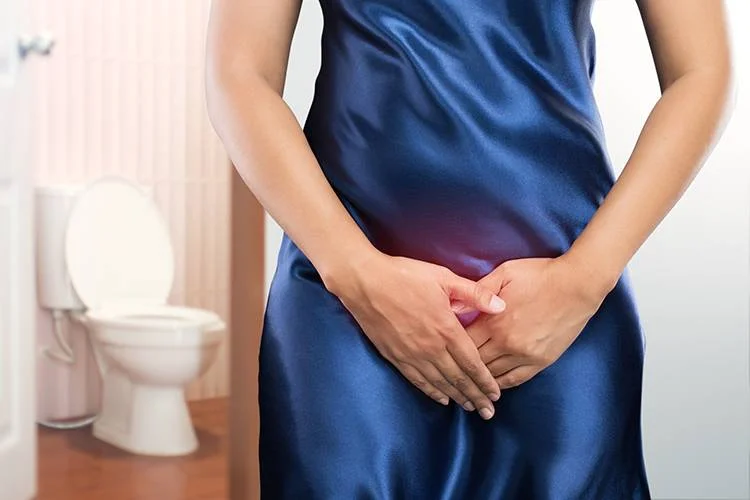Incontinence, especially in its advanced stages, can significantly impact a person’s daily life. The challenges are not just physical but also emotional and social. For those suffering from advanced urinary incontinence, finding effective solutions to manage symptoms is essential to maintaining independence, dignity, and overall quality of life. Advanced urinary incontinence solutions can make a tremendous difference, but they requires a holistic approach that encompasses medical treatments, lifestyle modifications, and emotional support.

What is the Emotional Impact of Advanced Incontinence?
Living with advanced incontinence is not just about managing the physical symptoms but also addressing the emotional challenges. Individuals often face embarrassment, anxiety, and a sense of isolation due to the unpredictable nature of their condition. This emotional burden can lead to depression, low self-esteem, and a reluctance to engage in social activities, which further decreases their quality of life.
Social stigma is often attached to incontinence, and this can cause individuals to feel ashamed or avoid seeking help. It’s vital to address the emotional aspect of incontinence just as much as the physical. Encouraging open communication with healthcare providers, family, and support groups can help individuals feel less isolated and more empowered in managing their condition.
Medical Treatments for Advanced Incontinence
Effective medical treatment plays a crucial role in improving the lives of those affected by advanced incontinence. The specific treatment will depend on the type and severity of incontinence, as well as the underlying cause. Here are some common options:
- Medications: Medications can help manage the symptoms of urinary incontinence, particularly for those with overactive bladder. Anticholinergic drugs and beta-3 agonists can help reduce the urge to urinate frequently, while topical estrogen treatments may help restore the health of the vaginal area in post-menopausal women, which can improve urinary control.
- Bladder Training and Scheduled Voiding: Bladder training involves gradually increasing the time between bathroom visits, helping individuals regain control over their bladder. Scheduled voiding, on the other hand, involves setting regular times to visit the restroom, which can reduce the urgency and frequency of incontinence episodes.
- Physical Therapy and Pelvic Floor Exercises: Pelvic floor exercises (also known as Kegel exercises) can strengthen the muscles that support the bladder and urethra. These exercises can be particularly beneficial for women with stress incontinence. Physical therapy and biofeedback are also used to help retrain the pelvic floor muscles, improving bladder control.
- Surgical Options: In some cases, surgery may be recommended to improve bladder control. Surgical treatments for advanced incontinence include sling procedures, bladder neck suspension, or artificial urinary sphincters. These surgeries are generally reserved for severe cases where other treatments have not been effective.
Lifestyle Modifications to Improve Quality of Life
Managing incontinence goes beyond medical treatments. Lifestyle changes can greatly improve day-to-day life and help individuals feel more in control of their condition.
- Dietary Adjustments: Certain foods and drinks can irritate the bladder and increase incontinence episodes. For example, caffeine, alcohol, spicy foods, and acidic drinks can exacerbate symptoms. By identifying and avoiding bladder irritants, individuals can reduce the frequency of incontinence. Additionally, staying hydrated is important, but it’s vital to monitor fluid intake and avoid excessive consumption in the evening to prevent nighttime accidents.
- Weight Management: Excess weight can put pressure on the bladder and pelvic muscles, contributing to incontinence. Maintaining a healthy weight can reduce this pressure and improve bladder function. A balanced diet and regular exercise can help individuals achieve and maintain an optimal weight, which in turn can reduce incontinence symptoms.
- Regular Exercise: Regular physical activity can strengthen the muscles involved in bladder control, improve overall health, and reduce stress, which is known to trigger incontinence. Activities such as walking, swimming, and low-impact exercises are excellent choices for those managing incontinence. It’s important to consult a doctor before beginning any exercise regimen to ensure that the chosen activities are safe and effective.
- Absorbent Products and Incontinence Aids: Using high-quality incontinence products, such as absorbent pads, adult diapers, and specialized underwear, can help individuals feel more secure and comfortable. Modern incontinence products are designed to be discreet, comfortable, and effective, allowing individuals to go about their daily activities without worry. Additionally, bed protectors and waterproof sheets can help manage nighttime incontinence, providing peace of mind during sleep.
Creating a Supportive Environment
Living with advanced incontinence requires a strong support system. This can include family members, healthcare providers, and support groups. A supportive environment makes a world of difference in managing the emotional and physical challenges of incontinence.
- Education and Awareness: Education about incontinence is vital for both individuals living with the condition and their caregivers. Understanding the causes, treatment options, and lifestyle modifications available can help people make informed decisions and feel more confident in managing their incontinence.
- Support Groups: Connecting with others who are going through similar experiences can be incredibly helpful. Support groups provide a space where individuals can share their challenges and successes, as well as offer emotional support. These groups can also provide valuable insights into managing incontinence and offer practical tips from people who understand the experience.
- Family and Caregiver Involvement: Family members and caregivers play a crucial role in supporting those with incontinence. Encouraging open communication and offering emotional and practical support can help individuals maintain their dignity and autonomy. It’s important for caregivers to remain compassionate and nonjudgmental while helping with daily tasks, such as assisting with incontinence products or managing medications.
Psychological Support for Individuals Suffering from Incontinence
Incontinence can have a profound impact on mental health. It can be difficult to come to terms with the loss of bladder control, and many individuals experience feelings of frustration, embarrassment, and anxiety. Psychological support is essential to help individuals cope with these emotions.
- Cognitive Behavioral Therapy (CBT): CBT is an evidence-based approach that can help individuals manage the psychological effects of incontinence. This type of therapy focuses on changing negative thought patterns and behaviors, helping individuals develop coping strategies and improve their quality of life.
- Stress Management Techniques: Incontinence can be exacerbated by stress, so finding ways to manage anxiety is essential. Techniques such as mindfulness, deep breathing exercises, yoga, and meditation can help reduce stress levels and improve emotional well-being.
- Counseling and Therapy: For some individuals, speaking with a therapist or counselor can provide relief. Therapy can help individuals process their feelings of shame or frustration, leading to improved emotional health. Therapy also provides a safe space to discuss any concerns or fears about incontinence, allowing for a healthier mental outlook.
Why Choose Refresh?
When it comes to improving the quality of life for those suffering from advanced incontinence, Refresh offers innovative solutions designed to enhance comfort, convenience, and dignity. Our range of products and services focuses on both physical and emotional well-being, ensuring that individuals receive comprehensive support in managing their condition. By choosing Refresh, you’re choosing a company dedicated to providing personalized care, exceptional customer service, and a commitment to making life easier for those with advanced incontinence. Let us help you regain your confidence and improve your day-to-day life.


